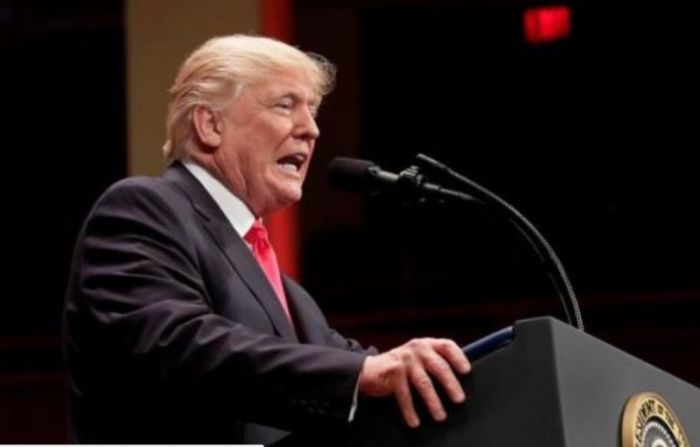Why Donald Trump Is a Lot Like Martin Luther (Not Always in a Good Way)

The differences between Martin Luther, the 16th century reformer, and Donald Trump, the 45th president of the United States, are countless. Yet, in some significant ways, they are very similar, and understanding the one helps us to understand the other.

Again, to be clear, the differences between these two men are countless.
Luther spent years as a celibate monk; Trump spent years as a philandering playboy.
Luther was a theologian turned reformer; Trump is a businessman turned politician.
Luther translated the entire Bible into German, word for word; Trump, at best, has a superficial knowledge of parts of the Bible.
Luther literally changed world history; Trump's impact on history remains to be seen.
And yet these two men bear striking similarities that are worth exploring.
Now, had I not been speaking in Germany this past weekend, I probably would not have thought of comparing Luther to Trump. But while conversing with some leaders about the strengths and weaknesses of Luther, I immediately thought of the strengths and weaknesses of Trump.
Luther was a courageous, even bull-headed leader, a man who took on the establishment of his day, both religiously and politically. Indeed, in terms of its breadth and scope and power, the establishment Luther faced down was far greater than anything Trump will ever face.
Yet almost singlehandedly, Luther took on the Church of his day, an entity that spanned continents and had immense power and wealth and influence. This required a forehead of steel and a courage that was as stubborn as it was fearless. This required the mindset of a wrecking ball.
But Luther's strengths were also his weaknesses, and just as he was responsible for much good – really, an immeasurable amount of good – he was also responsible for much bad.
His words often got him in trouble – shall I quote here some of his worst sayings regarding the Jewish people, the peasants, or the Anabaptists? – and his bullheaded style of leadership made for him many unneeded enemies. Can you see why I liken him to Trump? (For those in the know, Luther's Table Talk can be compared to Trump's Twitter account.)
Clearly, I'm not trying to make a detailed comparison between their personalities, which from what I can tell, were quite dissimilar. But when one thinks of the strengths and weaknesses of Luther, one immediately thinks of the strengths and weaknesses of Trump.
Donald Trump backs down to no one, and he is absolutely bull-headed in his convictions. If he feels he is right, he will take on the world, and I mean that quite literally. He will take on the American media; he will take on Congress; he will take on Russia and China. You oppose him, and he will fight you to the finish.
He is also an anti-establishment figure, and it is this quality that earned him many of his votes. His constituents were sick and tired of the status quo, sick and tired of politics as usual, and they wanted someone who would rock the boat. They wanted a wrecking ball and they got one.
But here too, Trump's strengths are his weaknesses. At times he has divided when he could have unified; he has alienated when he could have reconciled; he has used a sledgehammer when a scalpel was needed.
Do you see why I draw a parallel between these two men?
Luther was truly a world changer, one of the most influential men who ever lived, a man responsible for a massive amount of good, both spiritually and culturally. But at what cost?
Trump is in the process of writing his legacy, and he can still be a powerful and effective president. But at what cost?
To the extent he can harness his strengths while working on his weaknesses, the good will outweigh the bad. To the extent his weaknesses become dominant, the bad could outweigh the good.
Isn't this a good reason to pray for President Trump as we commemorate the 500th anniversary of Luther's reformation?




























